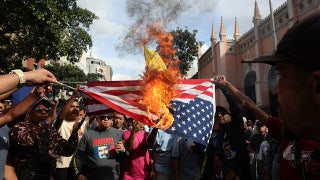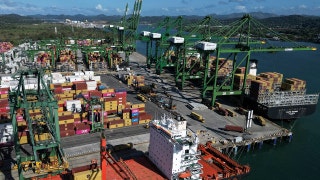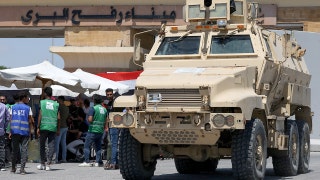PARIS – Lined up before dawn, dozens of migrants outside a government office in Italy jostled to be one of the handful allowed inside to request asylum Wednesday.
The journeys that brought them to Rome and the sleepless nights wondering if they would be allowed to stay was being repeated in cities and countries around the world on World Refugee Day as millions of people sought to flee persecution, violence, war and poverty.
The Rohingya Muslims forced out of Myanmar to Bangladesh; teenagers from Mexico and Central America seeking safety in the United States; Syria's war refugees; men from South Sudan and Nigeria crossing the Mediterranean Sea to feed their families — they are among the human wave roiling every continent.
"The international community must work with shared and long-term political choices to manage a phenomenon that involves the entire world," Italian President Sergio Mattarella, whose country is on the receiving end of Europe's immigration front line, said in a World Refugee Day message.
While migration to the world's 35 richest countries dropped slightly last year for the first time since 2011, asylum claims rose by 26 percent in the United States, according to a new report from the Organization for Economic Cooperation and Development, which represents the wealthy nations.
Meanwhile, the United Nations refugee agency reported this week that nearly 69 million people were forcibly displaced in 2017, a record for the fifth straight year.
OECD Secretary-General Angel Gurria insisted that since migration is here to stay, countries need to work to integrate newcomers and to prepare their native-born populations to welcome foreigners instead of resent them. Migration disproportionally affects young men, and he called for support policies, particularly in terms of training and skills development, according to the report.
"The absence of the policy is what's creating this cacophony," Gurria said.
In Europe, leaders of European Union member countries are trying anew to come up with continent-wide solutions to a mass migration crisis that has pitted nations and politicians against each other.
The interior minister in Italy's new populist government, Matteo Salvini, refused a port of entry this month to a rescue boat operated by two nonprofit groups that carried 630 people who were picked up while trying to cross the Mediterranean Sea from Libya.
Italy has been the arriving place of the bulk of migrants who attempt the dangerous sea crossing for a variety of reasons — as seen in the discouraged line outside the Rome immigration office. Salvini is pressing other EU members to share the burden.
Migrants and refugees who were swept off the streets of Paris in recent weeks now occupy a gymnasium, all of them wishing Wednesday to be somewhere else.
Nasir Ahmad, an Afghan living in the Paris gym, spent a year in Germany and has been in France for two years, hoping to get the documents he needs to make France his home.
"I have good energy. I have good energy to do for the work, but nobody used me," he said. "Nothing changed. Only I changed. I get old."
German Chancellor Angela Merkel, who faces constant criticism and mounting pressure over her decision to open Germany to refugees in recent year, said how to handle the sheer number of people fleeing violence and persecution is "a central global question of our time."
Some 700,000 Rohingya fled brutal attacks by government forces and mobs last year in Myanmar, pouring across the border into crowded makeshift refugee camps in Bangladesh. Monsoon rains have begun sweeping through the camps, often leaving the refugees to wade through rivers of mud and water.
At the Kutupalong refugee camp outside of Cox's Bazaar, Bangladesh, more than 100 Rohingya marched Wednesday to highlight their suffering, demanding that international organizations hold the Myanmar government accountable for the attacks that drove them into exile.
Many wore T-shirts and paper hats proclaiming they are "Not Bengali." In Myanmar, the Rohingya are often derided as illegal migrants from Bangladesh.
Abdu Shukkur, a 44-year-old refugee, denounced the Myanmar government for refusing to recognize the Rohingya as an ethnic minority and for denying them "the right to citizenship and its privileges."
In Lebanon, Syrian refugees have begun building lives in similar camps intended to be temporary way-stations. Turkey remains the country with the largest number of Syrian refugees, but tiny Lebanon holds the highest concentration per capita of refugees in the world.
Em Mohammed, a Syrian refugee from Idlib, supports her three children working as a tailor in Lebanon.
"I won't return because here there is assistance, there are many camps, I can sew, and I can sustain myself," she said. "There (in Syria), there are no camps, no people and they have no money to buy. They don't even have places to sleep there."
___
Barry reported from Rome. Jeffrey Schaeffer in Paris also contributed.








































